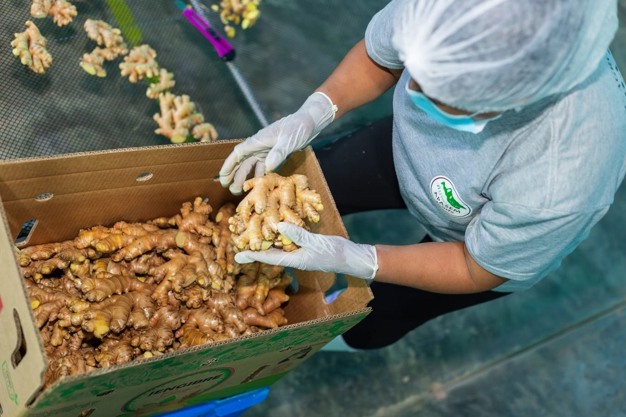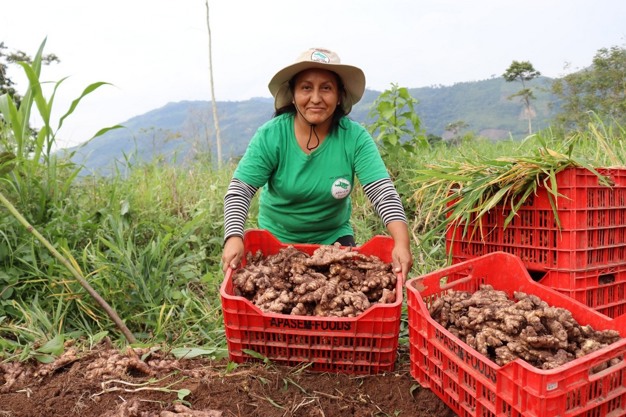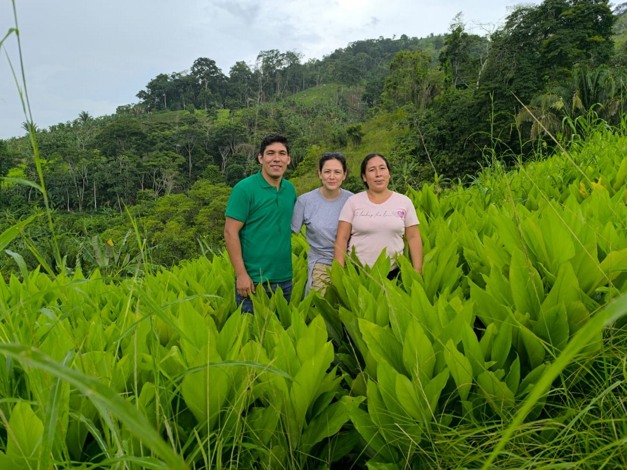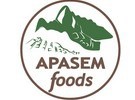The growing demand for ginger, turmeric, and citrus fruits in Europe and North America has led producers in the Pichanaki region of Peru's central jungle to strengthen their presence in the global market. By focusing on direct exports, they aim to improve their competitiveness and ensure product traceability. Germany, the Netherlands, and Austria, where buyers value quality and organic certification, have become important markets.

"Last year our exports were led by fresh ginger and its derivatives, such as dried and powdered products," stated Sofia del Rio, APASEM Foods' international trade manager. The company, which supplies Peruvian exporters between 2019 and 2021, has opted for direct export in recent years and expects to ship 120 containers of fresh ginger and 50 containers of turmeric this year.
The ginger market is highly competitive. China, Brazil, India, and Costa Rica are its main players. "We want to stand out through formality, traceability, quality, and organic certification," Del Río stated. The company has organic certifications for the US, Europe, and Canada. It also has GlobalGAP, GRASP, and BRC certifications and is in the process of obtaining Fair Trade certification.

"Quality is guaranteed through rigorous fieldwork, including analysis of the plants and raw material upon delivery. Ensuring accurate traceability of the product and ensuring an efficient process in the production plant is also key," Del Rio stressed.
One of the biggest challenges has been price volatility. "Last year was quite slow due to the skyrocketing prices in the international market and because the quality was not what we expected," Del Rio said. Currently, the price of organic ginger stands at $30 per 30-pound box FOB, reflecting fluctuating global demand.
The industry faces phytosanitary challenges caused by diseases such as Ralstonia and Erwinia. To mitigate these problems, the company uses techniques such as selecting healthy seeds, carrying out soil and seed analysis, and incorporating organic matter and effective microorganisms for soil regeneration.
"We are working in the Junín region with Proginger Peru, INIA, and the Regional Government of Junín (GORE Junín) to develop a variety of ginger that is more resistant to these diseases," stated the company's CEO. Agricultural practices that improve soil quality and crop productivity, including reforestation techniques and regenerative agriculture, are also being promoted.

"Peruvian ginger has great potential due to its unique aroma, flavor, and quality characteristics. Our goal is to remain competitive and respond to market demand," Del Rio added. The agricultural export sector must comply with international regulations on certification, quality, and traceability. Adopting sustainable practices and optimizing production processes have become essential to meet these requirements and ensure competitiveness in global markets.
"Price volatility, weather issues, and logistical barriers continue to affect the sector's stability. Demand in Europe and North America continues to increase, driven by consumers who prioritize products with certifications and transparent processes. However, competition with large producers such as China and Brazil forces exporters to differentiate themselves through quality and sustainability," he concluded.
 For more information:
For more information:
Sofía del Río
APASEM Foods
Peru
Tel: +51 945 693 112 / +49 1573 474 876
Email: [email protected]
www.apasemfoods.com










